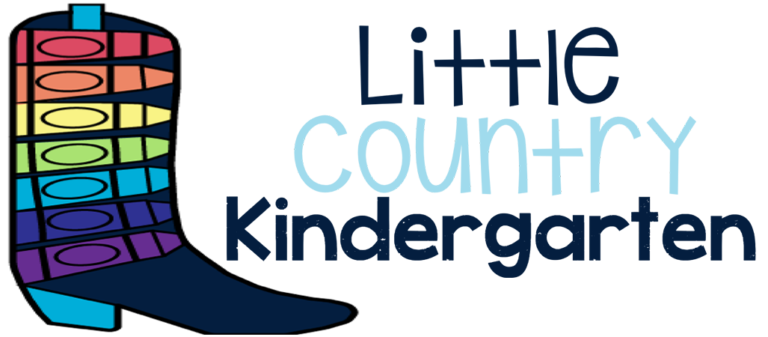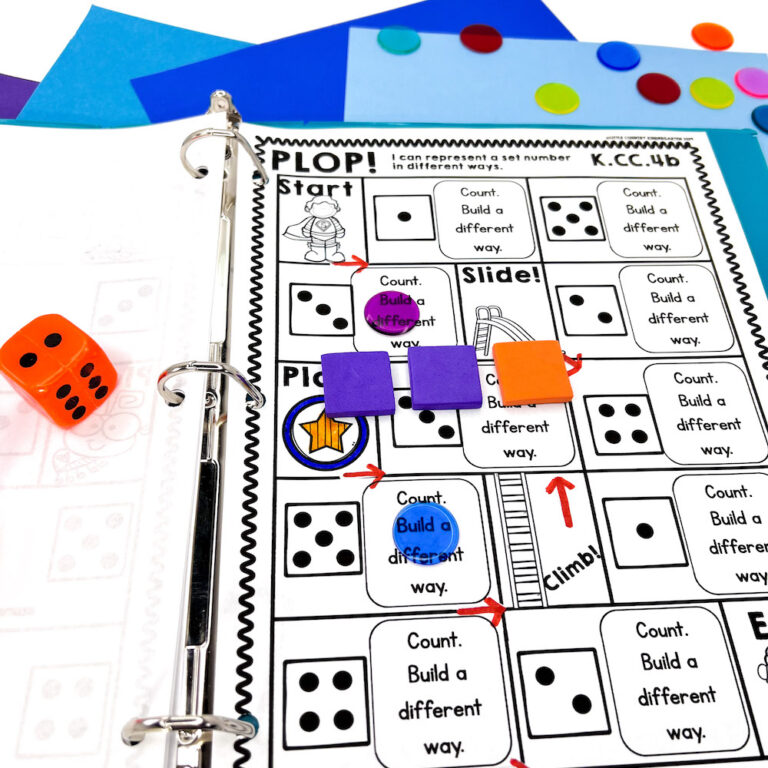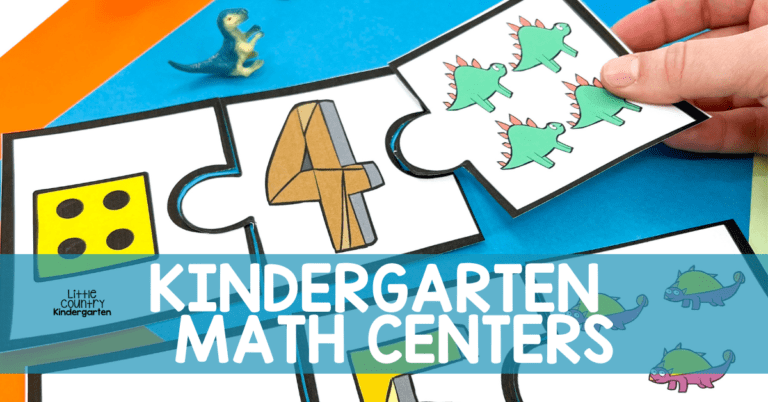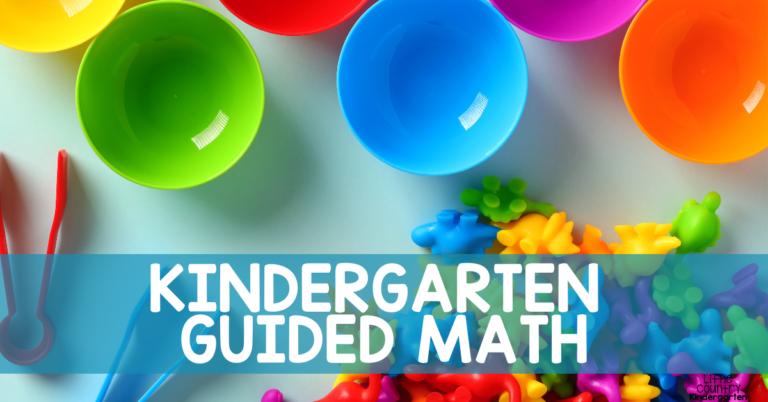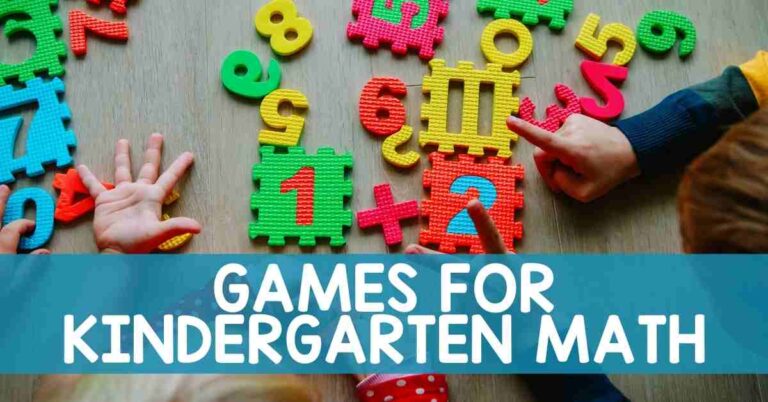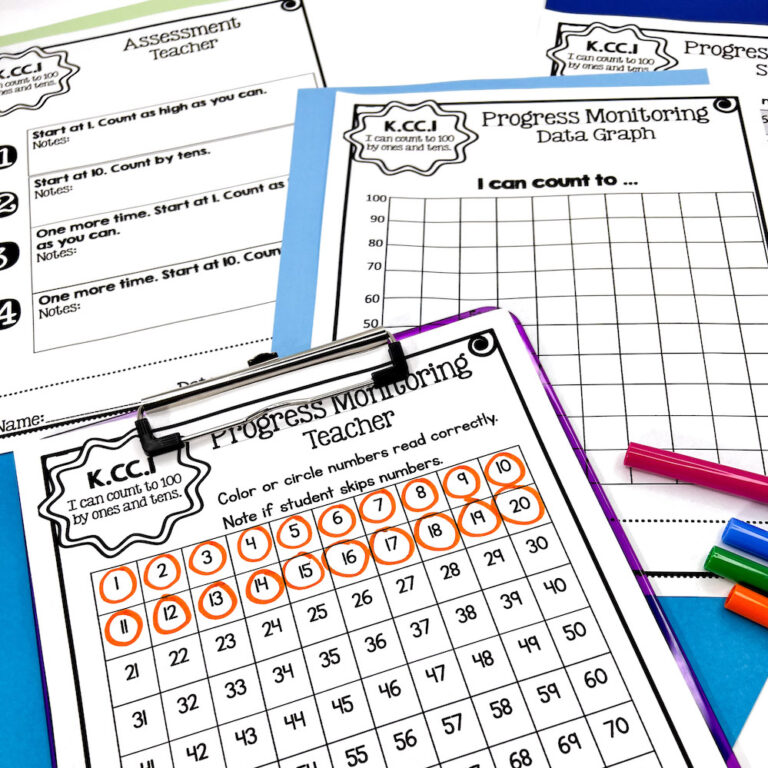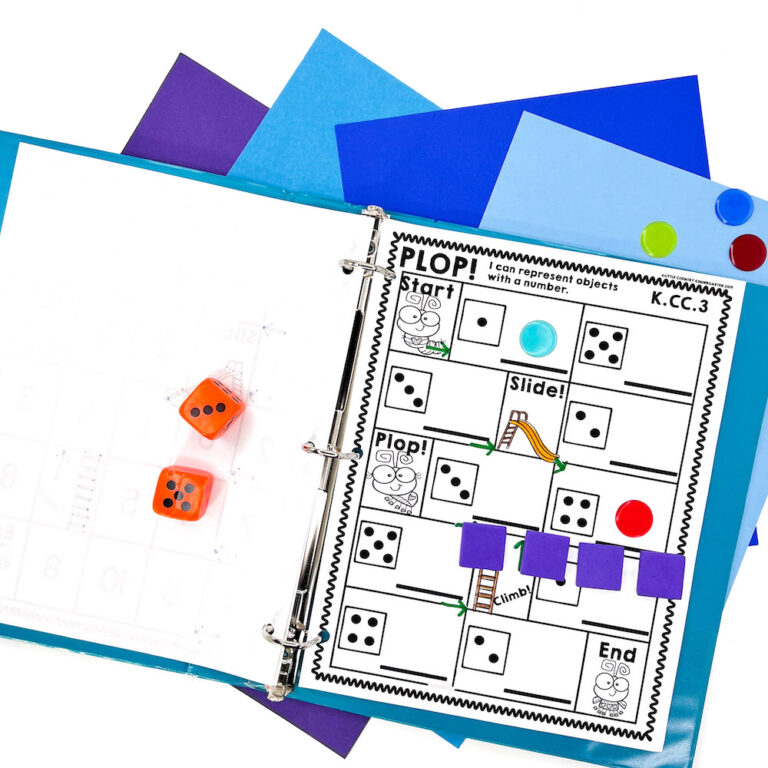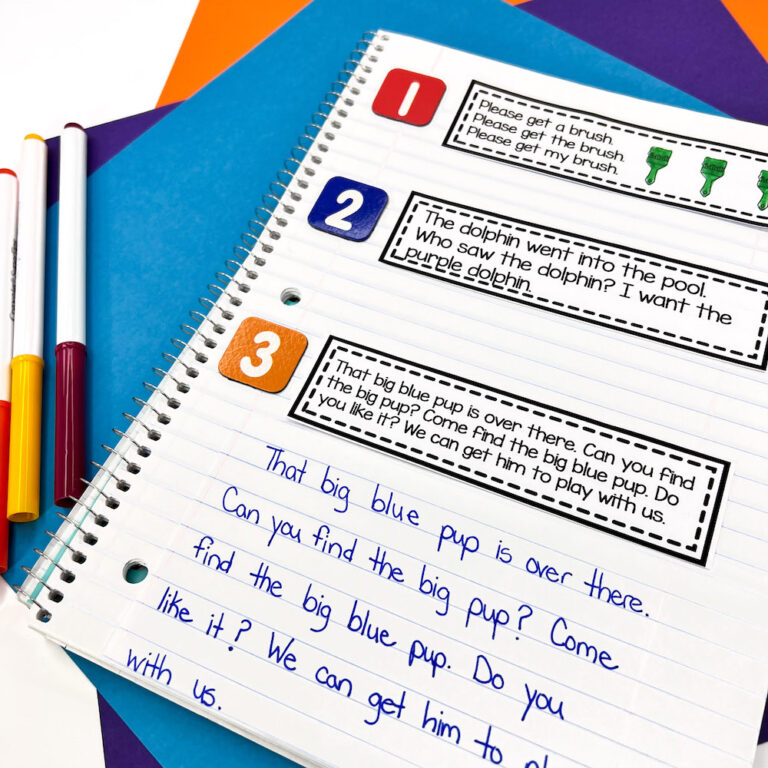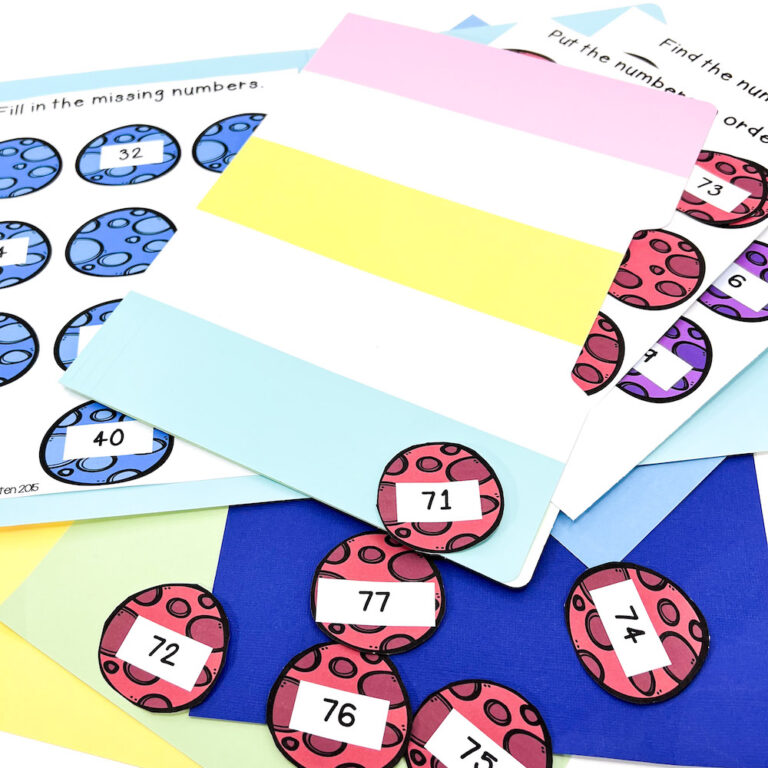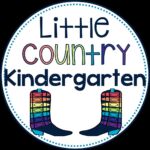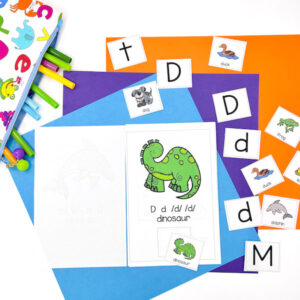Teaching small group math in kindergarten means a lot of manipulatives, repetition, and engaging activities that will lay the foundation for students’ math ability for years to come. I personally want to see each one of my students during small group math instruction daily, and so I use the kindergarten guided math model.
Teaching Small Group Math Matters
I think implementing small group math instruction matters because it allows you to always know where your students are in understanding their math concepts. It allows you to see who is skipping numbers when rote counting, who is double counting when counting with objects, who is having difficulty writing numbers correctly, and more. By teaching math in kindergarten with three daily centers (teacher, table, and technology) I get to see each student when they are at my table for teacher center.
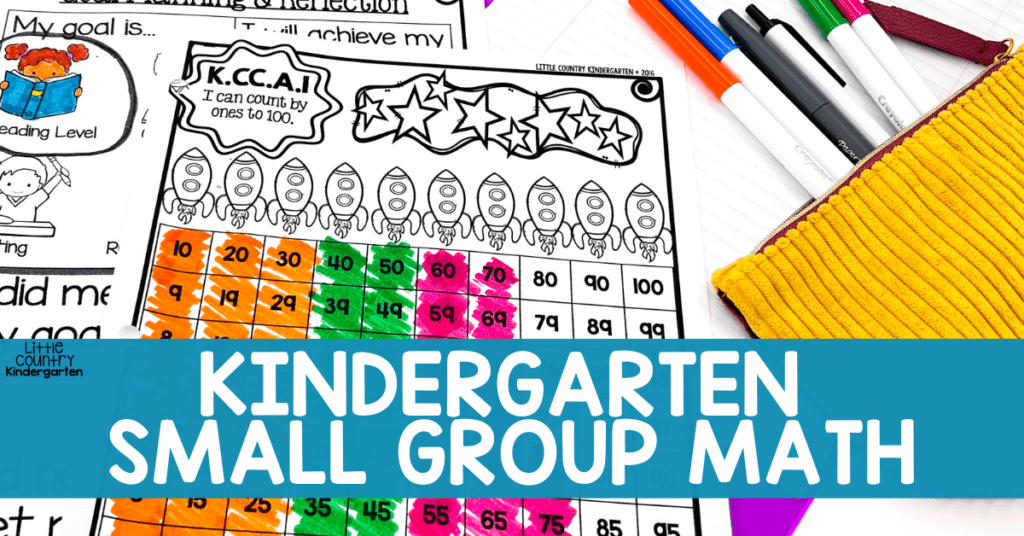
How Teacher Table in Kindergarten Math Looks
Schedule/Routine
I do three 20 minute centers daily during kindergarten guided math. During my 20 minute teaching center I do different things based on the day of the week. I usually teach core content on Monday through Wednesday, review prior concepts on Thursday and introduce a new center or game, and complete progress monitoring and assessments on Fridays while students update their data binders.
Lessons
I teach our district math curriculum in my small group math table center. Yes, this means that I teach the same lesson three times in a day, but this also means I can change it up with each group if one is completing it faster or if one needs to take extra time. It’s only twenty minutes a day, so I can teach it three times in a row if it means my students will better understand their math!
Introduce New Centers
I like to introduce new centers in my teacher table so that I can ensure that students are playing them correctly, understand the rules, and understand the concepts. This helps my students be more independent during their table center work and not interrupt my mini lessons at my table as much.
Manipulatives
I introduce new manipulatives in my center so students get a chance to observe, play, and use them before independently using them themselves. This helps them be more responsible with them when they are not accessing them in my group and also helps them understand how to use them properly. I also have certain manipulatives that just stay at my teacher table so they are excited to come use them!
Games
Math should be fun! I play games with my students at my table so I can see them show their knowledge in a fun and authentic way. Sometimes these games also become independent center options later and other times they are just for me. These can also be great ways to informally assess math standards such as my fun printable kindergarten math games.
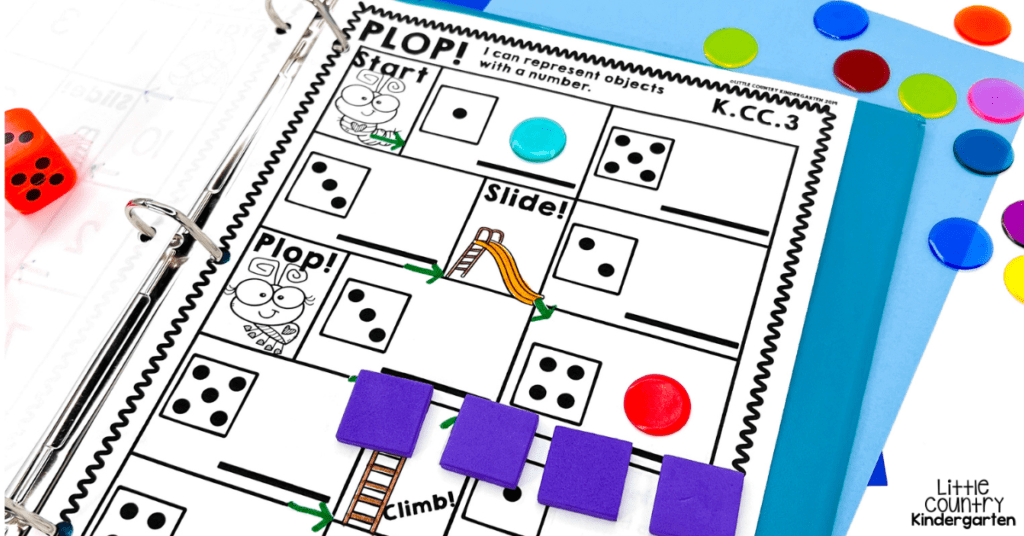
Data Sheets
Data sheets are important to me so that I can see my students’ growth. My students update their own data binders weekly so they can see how much they are learning and strive to be better mathematicians. We track counting, shapes, and other math standards and each student has their own math goals.
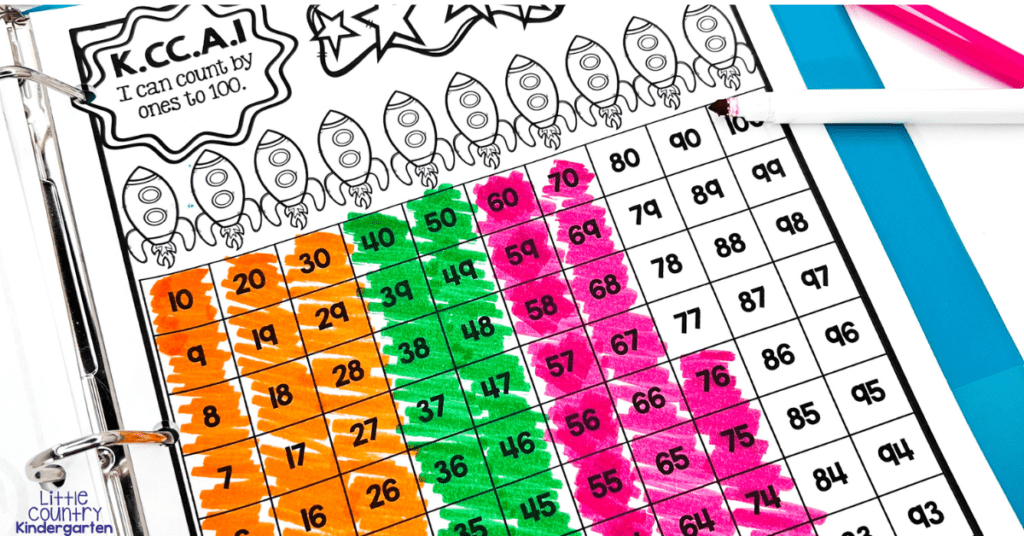
Review, Assess, & Interventions
I review lessons at my table frequently because kindergarten math standards build on each other so much. Sometimes a quick exit ticket is all I need to see who did or didn’t understand a concept. Assessing in small group math also means I can make sure each student is trying their best and truly doesn’t understand if they make an error. This small group math time also gives me time to complete interventions and chart math progress monitoring data on students who may need extra help.
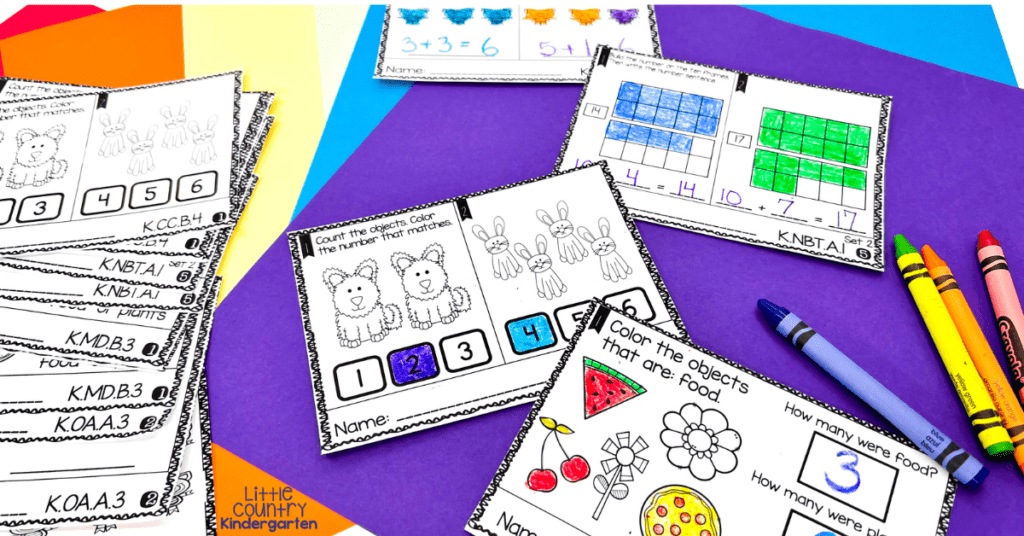
Teaching Math in Kindergarten Takeaways
Teacher table is my favorite part of teaching kindergarten guided math model. I get to see each student complete math lessons aligned to our kindergarten standards, review and assess, take data and complete interventions, and introduce new centers in a structured way where I can see students before they independently play them. Do you teach small group math in kindergarten?
Teaching Small Group Math in Kindergarten Free Assessment
Use this free math assessment to easily target your students’ needs and see where they are having gaps. We constantly assess in kindergarten, and knowing where your students need extra help makes interventions in your small group even easier.
